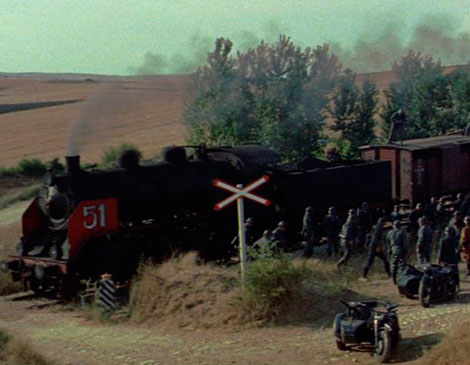When I was 7 or 8 years old, I caught the last few minutes of a Frank Sinatra movie called Von Ryan’s Express on TV.
The story was pretty clear to me even then: Sinatra, an American Air Force colonel, is helping a group of Allied prisoners of war escape the Nazis by train into Switzerland. But he gets gunned down before he can join the rest of the boys on their ride to freedom. As he lies sprawled dead on the tracks, a hopeful voice-over kicks in: “If only one gets out, it’ll be a victory.”That became my mantra when, a couple decades later, I began working in the writing center of a failing Cleveland public school. Life in the inner city was hard, but if I could help even one of these kids get to college, I’d be a hero worthy of Ol’ Blue Eyes himself.
Not that I knew much about the inner city, of course. I’d spent the majority of my life in Cleveland’s eastern suburbs, attending a private school that didn’t have metal detectors at the door or a mold problem in its library. I wanted to pay my educational fortune forward. I didn’t have much experience, but I did have two degrees in English.
I thought I just might have a chance to turn things around.
My opportunity came when Dante walked into the writing center. He was a shy kid, quick to smile, his fingers nervously turning over the bottom edges of his wrinkled school uniform. He was a special needs student, although I never learned what his set of needs were.
Most of the kids I’d worked with had been required to attend the writing center. They met my suggestions for breaking up their run-on sentences with passivity, rolled eyes or open hostility. Dante was the only student who had come to the writing center voluntarily. In fact, unlike any of the students I’d worked with, he seemed to like it there.
I asked how I could help him. He told me he was working on an essay for the Common App, a widely used program for college applications.
“That’s great!” I said. I knew right away that Dante would be my inspirational story, my crowning achievement. I would get this kid into college. I would hoist him onto the back of that train, and I would look good doing it.
I worked with Dante every day that I could. We brainstormed and drafted an essay that touched on the death of his mother, his connection to music and his aspirations to become a hip-hop producer. I pressed him for details and pushed him to reword his sentences for maximum effect.
We were going to craft the best college essay the admissions officers of Whichever State University had ever seen. We started work in October.
By December, Dante was feeling the strain.
“Do you think it’s ready now?” he asked a few times, hopeful.
“It’s close,” I said. We had more comma splices to fix, more paragraphs to rearrange.
When we finally finished the last week of the semester, I was beaming. “You did it!” Dante reluctantly accepted my high-five. He printed the paper and, shoulders slouched, started the journey down the long flight of stairs.
It wasn’t until the next week that I ran into his college counselor in the hall. “We finished Dante’s Common App essay,” I told him.
He gave me a confused look. None of the colleges Dante was applying to used the Common App.
It took Dante’s health teacher to clear up the confusion: He’d assigned all his students a Common App essay back in October, just to give them writing practice. The assignment had been due for almost two months now. It had been worth, in a class scored out of 1,000, somewhere in the neighborhood of five or 10 points. Dante didn’t come to the writing center as much the rest of the school year. He’d been missing class to work with me, and he needed solid attendance if he wanted to graduate — which he did. He even got into Cuyahoga Community College.
I never asked him if he showed the admissions department the essay we worked on together. We did stay in touch for a while after he graduated, but the flow of phone calls — it was always him calling — slowed, then finally stopped.
Dante’s graduation was the last time I set foot in the school. Maybe the mold in the ceiling had infected me somehow, leeching from me the energy and drive I had at the beginning of the school year. Maybe it was embarrassment at my arrogance — a swagger that aspired to match Sinatra’s own — in thinking I could save a trainload of kids, or even one, on the strength of my own charisma and grammar knowledge.
Or maybe I didn’t want to be reminded that for many, the train we were running toward had left the station a long, long time ago, and the guys with the guns were closing in from behind.




